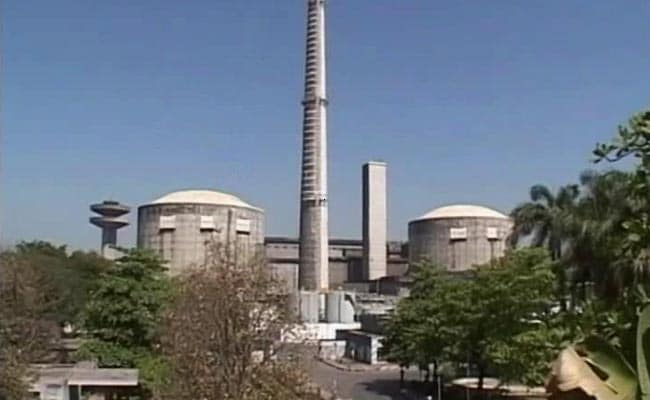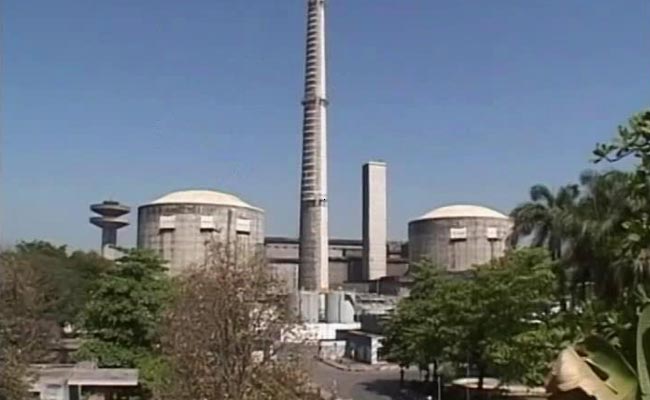Top nuclear scientist K N Vyas, Director of Bhabha Atomic Research Centre, said he believes the problem at the Gujarat nuclear reactor may not occur at the other sites.
- Two months after leakage in cooling system, cause not known
- The Gujarat reactor will stay shut till the investigation is complete
- The problem may not come up in other reactors, says BARC chief KN Vyas
Did our AI summary help?
Let us know.
New Delhi:
Nearly two months after the nuclear reactor at Gujarat's Kakrapar developed a leak in its cooling system and was shut down, nuclear engineers are yet to find how it was caused. And although there was no leakage of radioactivity, the matter has triggered concerns about the safety of the country's 18 other nuclear reactors.
To address the concerns, it has been decided to keep the reactor shut till the investigation is complete. But India's top nuclear scientist K N Vyas, Director of the Bhabha Atomic Research Centre, said he believes the problem may not be generic.
"I feel an isolated incident like this should not be the cause for worry," he said. "These types of incidents have taken place in Canadian reactors also more than once." In some cases, the severity of the incident was worse, he added.

The Rs 1,400 crore atomic plant had been refurbished recently, and the reason of the leak remains a mystery.
Explaining the procedure of the investigation, Dr Vyas said an inspection has been carried out through a probe tube, which has failed. "The crack has been identified (But) till the tube is cut and brought here, it'll be very difficult to say there is a generic problem," he said.
Such tubes, he said, have been manufactured in nuclear fuel complex for so many years but so far, no such problem has been observed. "I personally feel that, had it been a generic problem, this particular issue would have come up earlier also," he said.

Dr Vyas, however, added that without a proper inspection and confirmation from the regulatory authority, "it will be incorrect for me to give any specific conclusion."
The leakage at Kakrapar was detected exactly four years after the disaster at Japan's Fukushima nuclear reactor, which had been caused by a tsunami.
After the leakage of heavy water was discovered in the morning, the plant was immediately shut down and emergency cooling systems took over.
To address the concerns, it has been decided to keep the reactor shut till the investigation is complete. But India's top nuclear scientist K N Vyas, Director of the Bhabha Atomic Research Centre, said he believes the problem may not be generic.
"I feel an isolated incident like this should not be the cause for worry," he said. "These types of incidents have taken place in Canadian reactors also more than once." In some cases, the severity of the incident was worse, he added.

On March 11, the nuclear reactor Gujarat's Kakrapar developed a leak in its cooling system and was shut down.
The Rs 1,400 crore atomic plant had been refurbished recently, and the reason of the leak remains a mystery.
Explaining the procedure of the investigation, Dr Vyas said an inspection has been carried out through a probe tube, which has failed. "The crack has been identified (But) till the tube is cut and brought here, it'll be very difficult to say there is a generic problem," he said.
Such tubes, he said, have been manufactured in nuclear fuel complex for so many years but so far, no such problem has been observed. "I personally feel that, had it been a generic problem, this particular issue would have come up earlier also," he said.

The leakage at Gujarat's Kakrapar nuclear reactor came exactly 4 years after the disaster at Japan's Fukushima.
Dr Vyas, however, added that without a proper inspection and confirmation from the regulatory authority, "it will be incorrect for me to give any specific conclusion."
The leakage at Kakrapar was detected exactly four years after the disaster at Japan's Fukushima nuclear reactor, which had been caused by a tsunami.
After the leakage of heavy water was discovered in the morning, the plant was immediately shut down and emergency cooling systems took over.
Track Latest News Live on NDTV.com and get news updates from India and around the world

